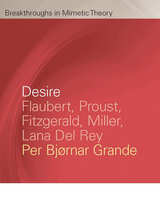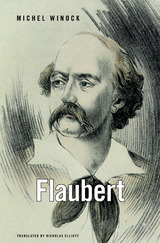

Michel Winock’s biography situates Gustave Flaubert’s life and work in France’s century of great democratic transition. Flaubert did not welcome the egalitarian society predicted by Tocqueville. Wary of the masses, he rejected the universal male suffrage hard won by the Revolution of 1848, and he was exasperated by the nascent socialism that promoted the collective to the detriment of the individual. But above all, he hated the bourgeoisie. Vulgar, ignorant, obsessed with material comforts, impervious to beauty, the French middle class embodied for Flaubert every vice of the democratic age. His loathing became a fixation—and a source of literary inspiration.
Flaubert depicts a man whose personality, habits, and thought are a stew of paradoxes. The author of Madame Bovary and Sentimental Education spent his life inseparably bound to solitude and melancholy, yet he enjoyed periodic escapes from his “hole” in Croisset to pursue a variety of pleasures: fervent friendships, society soirées, and a whirlwind of literary and romantic encounters. He prided himself on the impersonality of his writing, but he did not hesitate to use material from his own life in his fiction. Nowhere are Flaubert’s contradictions more evident than in his politics. An enemy of power who held no nostalgia for the monarchy or the church, he was nonetheless hostile to collectivist utopias.
Despite declarations of the timelessness and sacredness of Art, Flaubert could not transcend the era he abominated. Rejecting the modern world, he paradoxically became its celebrated chronicler and the most modern writer of his time.

Finalist, 2006 National Book Critics Circle Awards, Biography Category | A New York Times Notable Book of 2006 | A Publishers Weekly Best Book of 2006
In this riveting landmark biography, Frederick Brown illuminates the life and career of the author of Madame Bovary. He describes Flaubert’s fraught relationship with his longtime mistress Louise Colet, his liaisons with many other women, and his friendships with luminaries such as Turgenev and Zola. Here too is Brown’s description of Flaubert’s meticulous compositional habits, his painstaking search for the sentence that is deeply, rhythmically right.
Brown brings his subject remarkably and fully to life, illuminating not only the novelist but also his milieu—the Paris and Normandy of the revolution of 1848 and of the Second Empire—with arresting clarity and a deepening sense of Flaubert’s time and place. Flaubert is a sophisticated, thorough, and utterly absorbing re-creation of the life and times of the man who is arguably the architect of the modern novel.
READERS
Browse our collection.
PUBLISHERS
See BiblioVault's publisher services.
STUDENT SERVICES
Files for college accessibility offices.
UChicago Accessibility Resources
home | accessibility | search | about | contact us
BiblioVault ® 2001 - 2024
The University of Chicago Press









